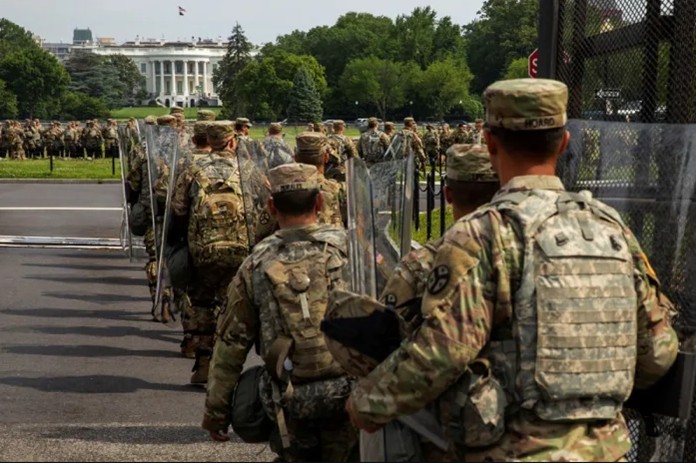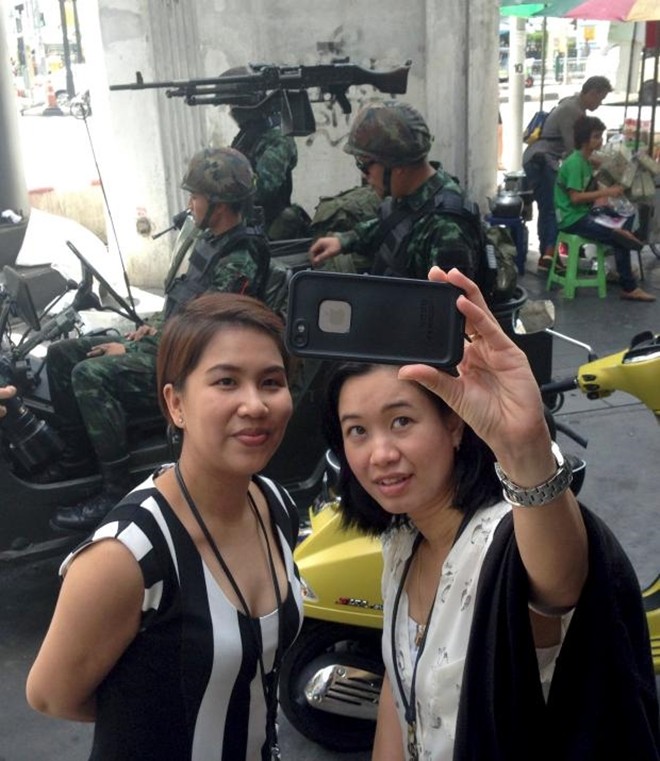
The same weekend (11-13 September) which saw public fears of an army coup in Thailand subside, witnessed a spike in concerns that one might be round the corner in that guardian of democracy, the United States of America. A wealthy country like that?
Please Support Pattaya Mail
In Bangkok, a Suan Dusit poll found that 58 percent of respondents did not believe a coup here was likely any time soon, even though tanks on ordinary maneuvers have recently had to display signs saying don’t worry, “Just Training.” This is because coups have become so frequent in Thailand during times of political stalemate that they are classified by many Thais as a common household medication (ya saman pracham ban). They put the lid on public squabbles.
Of course, it is true that Thai youth has now become more politicized or out-of-hand, depending on how you look at it, and that ideologies critical of orthodox political traditions have spread both on the streets and on social media. But another coup now would solve nothing, add to the problems already created by the coronavirus and economic gloom and risk international sanctions when they are least wanted. Isn’t the army in charge here anyway?
An additional consideration is that political opposition is now much more diffuse than in 2014, the year of the last putsch. Then the army simply had to round up key government figures of the Yingluck Shinawatra administration and to order the Redshirts at their rally points to go home. Opposition nowadays is less centred on the capital city and not at all dependent on state-run TV and radio stations. It is worth noting that the coup attempt in Turkey in 2016 partly failed because the plotters could not prevent president Erdogan, who was on vacation, from transmitting messages to his supporters from his aide’s cell phone. One mobile rallied a whole nation.
Meanwhile, in the USA, the most recent Yougov poll suggested around 40 percent of respondents thought a coup or a civil war were distinct possibilities. The most likely attempted takeover would be a self-coup (coup d’auto) where the incumbent political leader – president Trump in this case – acts to retain power. Since his election four years ago, he has consistently claimed he is the victim of a left-wing, media-inspired deep-state conspiracy. He actually decried the 2020 House impeachment inquiry as an unconstitutional “coup attempt.”
All this livened up at the weekend when long-term associate Roger Stone, recently pardoned by Trump for lying to Congress and witness-tampering, suggested that his boss should declare martial law if he lost the November election because the Democrats would only be able to win by massive fraud surrounding absentee balloting and voting by mail. Trump could then invoke the Insurrection Act of 1807 to arrest the Clintons, Mark Zuckerberg of Facebook and anybody else who might be involved in “illegal activity.” The army and the police would effectively be nationalized by Trump and his cabal. In response, Trump only said he would indeed arrest left-wing conspirators “if necessary.” In other words, if he lost the election.

In response, the losing Democrat contender, Joseph Biden, might well point to widespread voter intimidation such as goons with guns showing up at polling stations, private armies patrolling the streets, deliberate attempts to destroy postal ballots and a host of other irregularities such as Republican pro-Trump governors refusing to ratify election results if they favoured opposition candidates.
Mass anti-Trump public protests would then erupt but the conservative-majority Supreme Court might well back Trump. Biden’s only recourse then would be to plead with military leaders to intervene and remove Trump from office. But for army, navy and air force serving generals – rather than the retired ones appearing on CNN – to rebel against their commander-in-chief is not small potatoes. No precedents for that in the USA.
The hope, of course, is for cooler heads in the USA to prevail after the ballot on November 8. In the politics of contemporary America don’t bank on that. In comparison, Thai politics may turn out to be very civilized indeed.
 |
 |
 |





